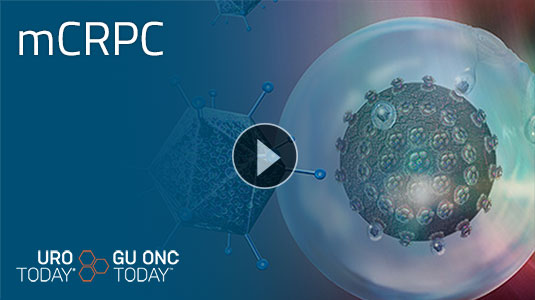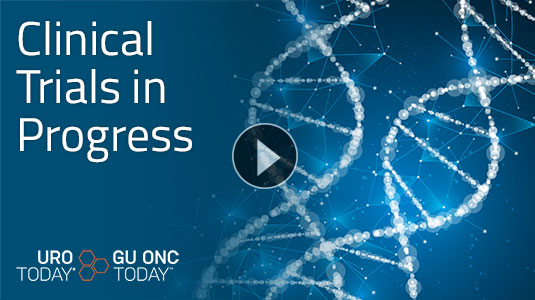- UroToday Home

- Trials in Progress
Trials in Progress
Masofaniten (EPI-7386) in Patients with Metastatic Castration-Resistant Prostate Cancer
A Phase 1/2 Study of EPI-7386 in Combination With Enzalutamide Compared With Enzalutamide Alone in Subjects With Metastatic Castration-Resistant Prostate Cancer
- Condition: Prostate Cancer
- Study ID: NCT05075577
- Combination of masofaniten plus enzalutamide continues to be well tolerated with deep and durable reductions in PSA in patients with mCRPC
- Phase 2 dose expansion currently underway at the RP2CDs of masofaniten 600 mg BID in combination with enzalutamide 160 mg QD
- Across all dosing cohorts, 81% of patients achieved PSA90, 69% of patients achieved PSA90 in less than 90 days, and 63% of patients achieved PSA <0.2ng/mL. While the data are still maturing, median time to PSA progression is currently at 16.6 months.
Background The androgen receptor (AR) is activated by androgen binding to the ligand binding domain (LBD) which induces the dimerization and nuclear translocation of the AR. Current AR-targeted therapies work directly or indirectly through the LBD of the AR either by competing with androgen binding to the LBD (lutamide) or by inhibiting the androgen production (centrally or through CYP17 inhibition).
View poster as PDF Read MoreAndrogen receptor (AR) signaling is the most important driver of prostate cancer initiation, development, and progression, even into the castration-resistant state. Androgen deprivation therapy (ADT) is the original “targeted therapy” in oncology. The next generation androgen- and AR-targeted agents, such as abiraterone acetate, enzalutamide, apalutamide and darolutamide further prove the concept that AR signaling remains critical in even later disease states. There are various mechanisms of resistance that continue to be inclusive of AR; this ranges from AR amplification, AR mutation, and potentially AR spliced variants.
Read MoreThe 2024 European Society of Medical Oncology (ESMO) Annual Congress held in Barcelona, Spain between September 13th and 17th was host to the presentation of poster 1641. Dr. Christos Kyriakopoulos presented the results of a phase 1/2 trial of oral Masofaniten (EPI-7386) in combination with Enzalutamide compared to Enzalutamide alone in metastatic castration-resistant prostate cancer (mCRPC) patients.
Read More






